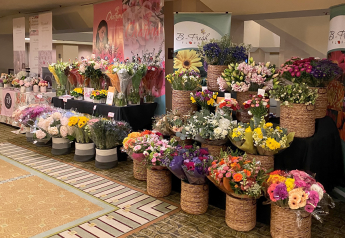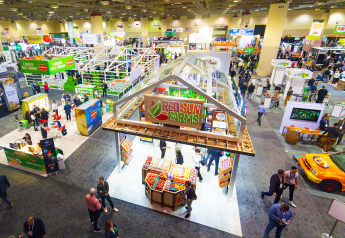Red delicious on the decline

WENATCHEE, Wash. — Red delicious will soon lose its status as the volume leader in the Washington apple industry.
The variety will comprise 25% of the 2017-18 crop, down about 5% from recent years, according to an estimate by the Washington State Tree Fruit Association, and numerous grower-shippers said they continue to move away from the classic apple.
Gala, estimated to account for 23% of the new crop, is on track to surpass red delicious this season or next.
“The popularity of reds has declined because we’re growing all these new varieties and they’re better-tasting,” said Randy Steensma, president of Honey Bear Fruit Co. “They don’t look as good as a red ... but these other apples have better eating characteristics.”
Alternatively, companies have been planting proprietary varieties or improved versions of varieties such as gala, fuji and Honeycrisp.
Many are also investing in growing Cosmic Crisp, an apple developed by the Washington State University breeding program.
More than 600,000 trees were planted this year, and about 5.5 million more will go in the ground next year.
“A number of our growers have been looking for a variety that will come into their harvest portfolio and take the same time slot as red delicious, which they’re trying to phase out a little, and this apple picks at about the same time as reds,” said Kate Evans, associate professor with the Washington State University Tree Fruit Research & Extension Center.
“My impression has been that a number of growers have sort of jumped on it really because it fits that harvest window for them,” Evans said.
Bill Knight, domestic sales manager for Northern Fruit Co., said the company is growing fewer reds even though it ships much of its fruit to markets where the variety is still desirable.
“That’s kept the red thing alive for us longer than maybe some other people,” Knight said. “We export a lot to China and Asia ... and those people fortunately still like to eat reds, so we’re still maybe a little heavier there than some people, but we’re slowly slimming down.”
Meeting consumer demand for better varieties has prompted the shift away from reds, but a parallel motivator has been the profit available.
“Where the grower’s not getting very much in terms of dollar per box, it becomes a very fine line as to whether the grower’s actually making any money from growing that variety anymore,” Evans said. “That’s a huge impact in terms of the grower decision.
“If there’s still a market for it, then they’ll grow it, if they can get a decent return,” Evans said. “It costs the grower considerably to change varieties, so they’re not going to make those decisions lightly.”







